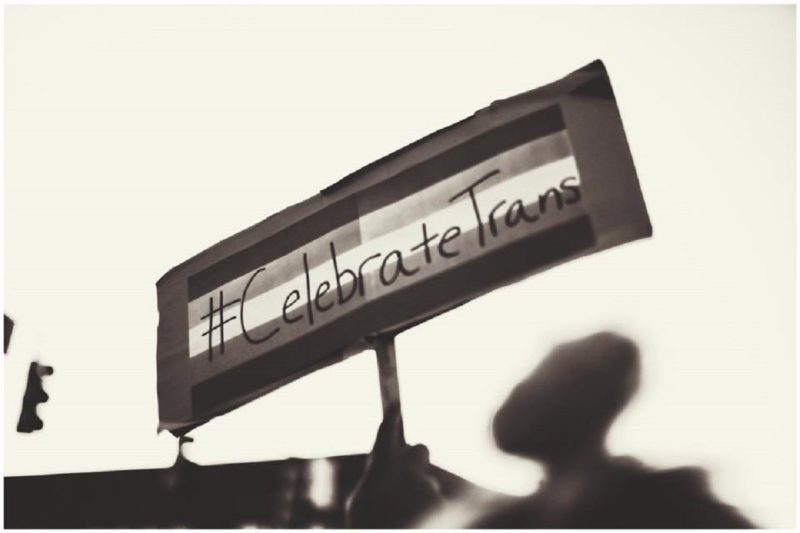Anti-Transgender Policies Go Beyond Bathroom Bills
It is an ongoing and constant battle in Tennessee for LGBTQ students and adults to find the support they need and deserve.

This piece is published in collaboration with Echoing Ida, a Forward Together project.
I was 8 years old in 1998 when gay college student Matthew Shepard was tied to a fence, beaten, and left to die near Laramie, Wyoming. Eleven years after that, President Barack Obama signed the Matthew Shepard and James Byrd Jr. Hate Crime Prevention Act making anti-LGBTQ violence a federal hate crime. It is currently the only protection LGBTQ people have in my home state of Tennessee. But I had already realized that I could be hated by or rejected from my community because of my sexuality or gender expression.
Only three of Tennessee’s counties protect people from being fired from their jobs due to their sexual orientation, and a transgender person can be fired anywhere in the state for simply expressing themselves in the gender they identify with rather than the sex listed on their birth certificate.
And the state is actively working to pass more discriminatory laws. In February of this year, Tennessee legislators proposed a bill that would allow mental health workers to deny services to patients if they disagreed with the patient’s sexuality or gender expression. They are also considering HB 2414, an anti-transgender bill similar to the one recently passed in North Carolina, requiring transgender students to use the school bathrooms that adhere to the sex on their birth certificate.
But I know this is about more than a bathroom.
It’s about Republicans and other conservative leaders using their positions and their power to discriminate against LGBTQ people. It’s about living in fear that they’ll come after you. Stressing over job security, bathroom security, and life security.
I am very familiar with this fear. I live with depression and anxiety. Both began when I was 11 and realized that there were people who might hate me or want to harm me for something I couldn’t help or stop: being a genderqueer-bodied person whose sexuality was queer. I knew that it wasn’t something that was seen as positive. I knew that I wasn’t ready to leave my community. So I lived in fear of being outed. I hid myself from friends and family for years, and I would become anxious any time I had to talk about relationships.
I even had a “just in case” plan. Between the ages of 11 and 17, I had a packed bag hidden in the closet just in case I became homeless as a result of being outed. I had $120 stashed away in shoes, toys, and bibles. I was prepared with my plan because I was aware that I could be one of the 40 percent of homeless youth who identify as LGBTQ.
The push from powerful legislators to make this situation even worse in Tennessee is part of a consistent pattern of homophobic and transphobic rhetoric that my peers and I have experienced. When I was in high school, I watched a gay student pack up his locker and get escorted from campus. A month later, I would contemplate and come close to a suicide attempt. More recently, from 2011 through 2013, Stacey Campfield, a former state legislator and Republican, repeatedly tried to pass the notorious “Don’t Say Gay” bill, which would have prohibited staff members at Tennessee public schools from talking to a student about the student’s sexual orientation. Just this year, Franklin County High School had to fight to keep its Gay-Straight Alliance because parents likened the group, a national organization that focuses on preventing bullying and offering support for LGBTQ students, to terrorism.
It is an ongoing and constant battle in Tennessee for LGBTQ students and adults to find the support they need and deserve: the right to access mental health services, to marry, to share a home, to get an education, and, yes, to use the bathroom of their choice.
In 2011, I joined the Youth Advisory Council of the Trevor Project, a nonprofit organization that focuses on suicide prevention for lesbian, gay, bisexual, transgender, and questioning youth. Staff asked me what I wanted to do in my position. My only goal was to give LGBTQ youth in Tennessee the support I didn’t have when I was younger.
Anti-LGBTQ legislation did not start with having access to a bathroom, and it will not end with fighting for bathroom access either. This is about lives, and the discrimination that I still fear will prevent me and others from the pursuit of happiness, outlined in the Constitution, we are told about during our time in school. But, in today’s United States, pursuit of happiness means little without bathroom security, job security, and life security. I won’t stop until we all have them.
